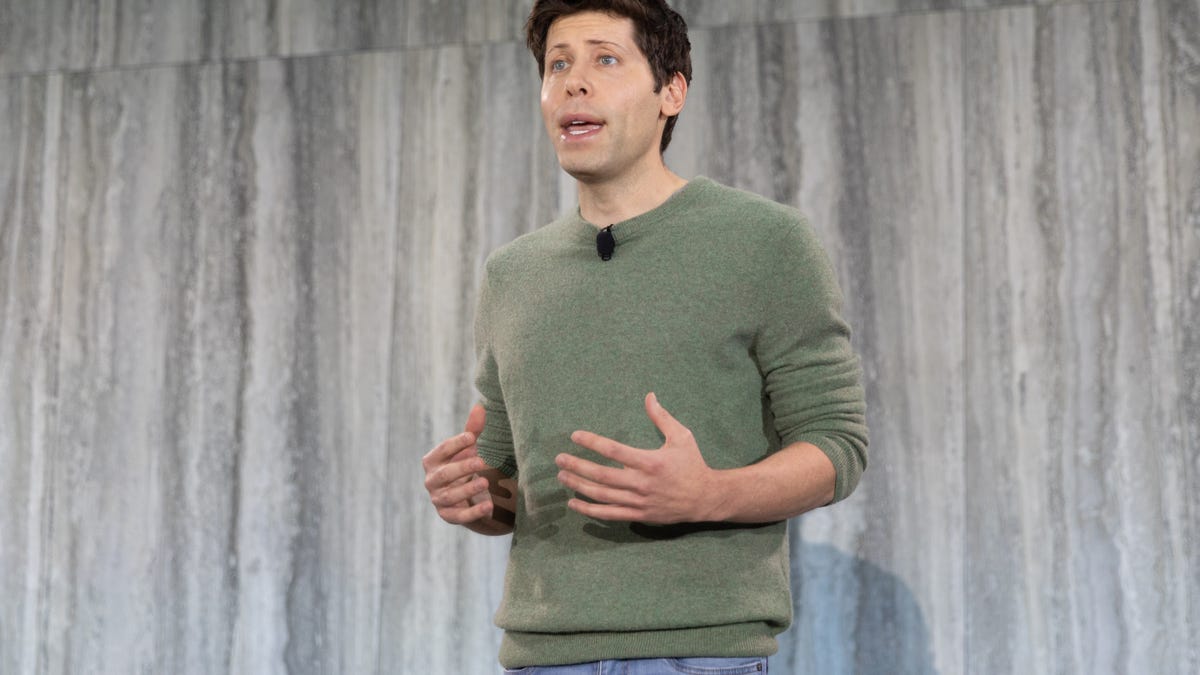OpenAI Isn't Working on GPT-5 Yet, CEO Sam Altman Says
GPT-5 won't be coming "for some time," Altman says.

OpenAI CEO Sam Altman speaks during a recent press event.
ChatGPT creator OpenAI hasn't yet begun working on GPT-5 and has no immediate plans to do so, CEO Sam Altman said this week.
Speaking at MIT via video call on Thursday, Altman referred to a letter signed by Elon Musk, Apple co-founder Steve Wozniak and others at the end of March and said, "An earlier version of the letter claimed that OpenAI's training GPT-5. We are not and won't be for some time."
The open letter had urged labs to take at least a six-month pause in artificial intelligence development due to the "profound risks" to society. Altman said he agreed with parts of the letter and added that OpenAI "spent more than six months after we finished training GPT-4 before we released it."
"I think moving with caution and increasing rigor for safety issues is really important," Altman said. "I also agree that as ... capabilities get more and more serious that the safety bar has got to increase.
"But we are doing other things on top of GPT-4 that I think have all sorts of safety issues that are important to address and were totally left out of the letter," Altman added, though he didn't expand on that. Altman's remarks were reported on earlier by CNBC.
The open letter, published by the nonprofit Future of Life Institute, mentioned concerns about unforeseen impacts of artificial intelligence.
"AI systems with human-competitive intelligence can pose profound risks to society and humanity as shown by extensive research and acknowledged by top AI labs," the letter said. "Should we let machines flood our information channels with propaganda and untruth? Should we automate away all the jobs, including the fulfilling ones? Should we risk loss of control of our civilization?"
The letter followed the mid-March public debut of OpenAI's GPT-4, an update to the large language model that powers the ChatGPT chatbot. According to OpenAI, GPT-4 has fewer flaws, produces more-nuanced results and handles more-complex tasks than earlier versions. ChatGPT draws on the huge data sets used to train GPT-4 to answer questions and perform tasks, like passing the bar exam.
"At some point, it may be important to get independent review before starting to train future systems," OpenAI says on its own website.
As OpenAI begins rolling out plugins for ChatGPT, CNET has broken down ChatGPT, Bing and Google Bard to work out which AI chatbot is the most helpful. Chinese giant Alibaba has also unveiled a ChatGPT rival, with both Chinese and English capabilities.
Editors' note: CNET is using an AI engine to create some personal finance explainers that are edited and fact-checked by our editors. For more, see this post.

